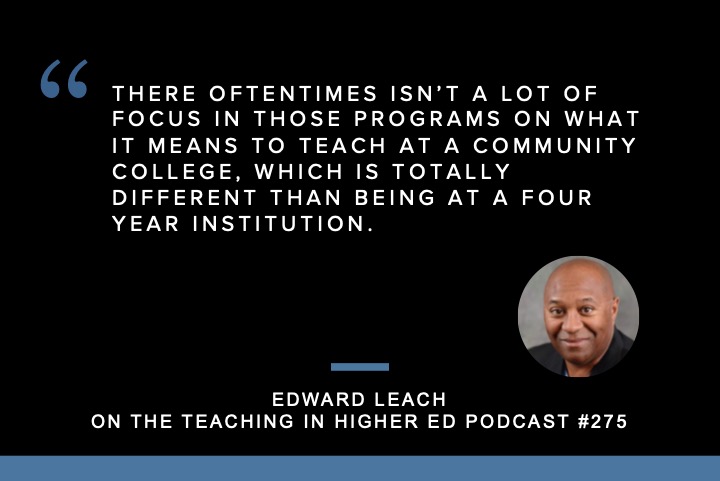Episode: Ep 161: Dr. Monica Rysavy and Russell Michalak on Finding a Research Partner
Pub date: 2019-06-03

On this episode, Katie is joined by two guests:
Monica D.T. Rysavy (Reeshavee), Ph.D., is the Director of Institutional Research and Training and an Assistant Professor at Goldey-Beacom College in Wilmington, Delaware. In this role she leads all institutional research and data analysis projects for the College. Her office provides faculty and staff training support by developing new training offerings (asynchronous and synchronous face-to-face and online programs) on a variety of instructional technology, survey research, and data management, analysis, and interpretation topics. Before transitioning to higher education, Monica worked as a high school business technology instructor in Delaware public schools. Monica earned her Ph.D. in Learning, Design, and Technology from The Pennsylvania State University and an Ed.D. in Education Leadership from Wilmington University.
Russell Michalak (mi-ha-lik), MLIS, is the Director of the Library, Archives, & Learning Center and an Assistant Professor at Goldey-Beacom College in Wilmington, Delaware. He oversees the annual budget, supervises librarians and paraprofessionals, and manages the delivery of research, information, instructional services, the tutoring center, and archives. Before joining GBC, he worked in various roles at the Libraries of the Claremont Colleges, Duke University, and the University of Utah. Russell earned his MA in Library and Information Studies from the University of Wisconsin, Madison and a BA in History from Occidental College.
Monica and Russell’s current collaborative research agenda focuses on information literacy-related topics, with an emphasis on utilizing online training modules to increase students’ information literacy skills, as well as academic library and institutional assessment.
Segment 1: Working with a Research Partner [00:00-14:22]
In this first segment, Monica and Rusty share how their research partnership came to be.
In this segment, the following resources are mentioned:
- Rysavy, M. D. T., & Michalak, R. (Eds.). (2019). Onboarding 2.0: Methods of designing and deploying effective onboarding training for academic libraries. Hauppauge, NY: Nova Science Publishers, Inc.
- Airtable
Segment 2: Choosing a Research Partner [14:23-36:03]
In segment two, Rusty and Monica share their tips for choosing an effective research partner.
To share feedback about this podcast episode, ask questions that could be featured in a future episode, or to share research-related resources, contact the “Research in Action” podcast:
Twitter: @RIA_podcast or #RIA_podcast Email: [email protected] Voicemail: 541-737-1111
If you listen to the podcast via iTunes, please consider leaving us a review.
The views expressed by guests on the Research in Action podcast do not necessarily represent the views of Oregon State University Ecampus or Oregon State University.
The podcast and artwork embedded on this page are from Dr. Katie Linder, Director of the Oregon State University Ecampus Research Unit, which is the property of its owner and not affiliated with or endorsed by Listen Notes, Inc.








